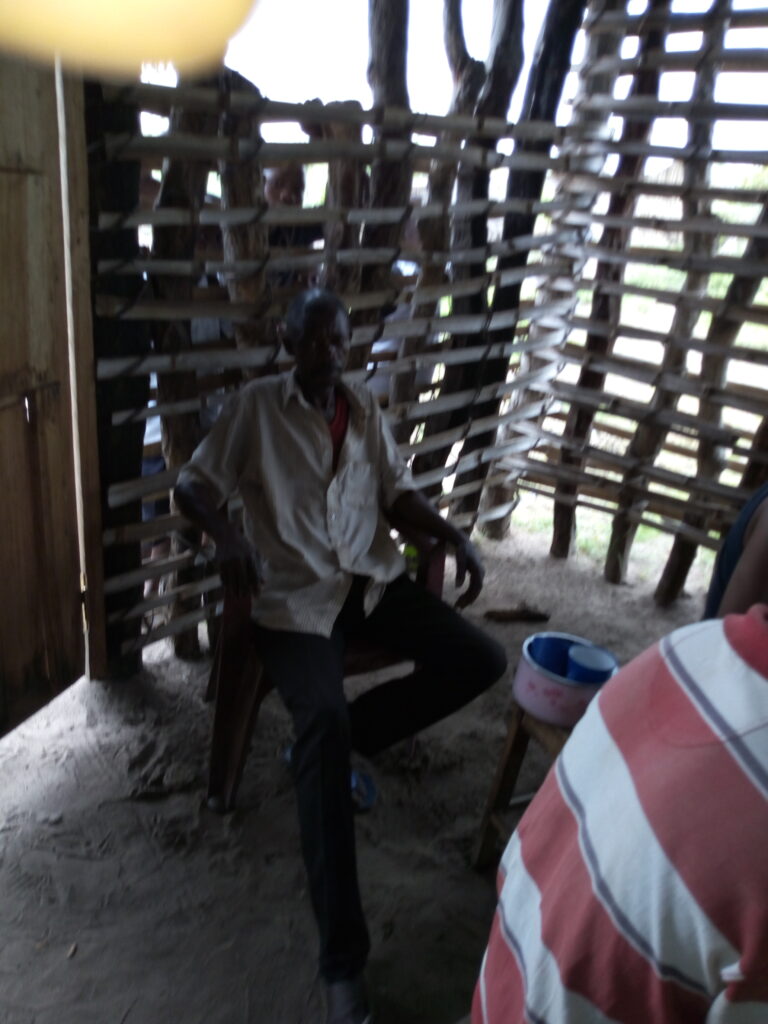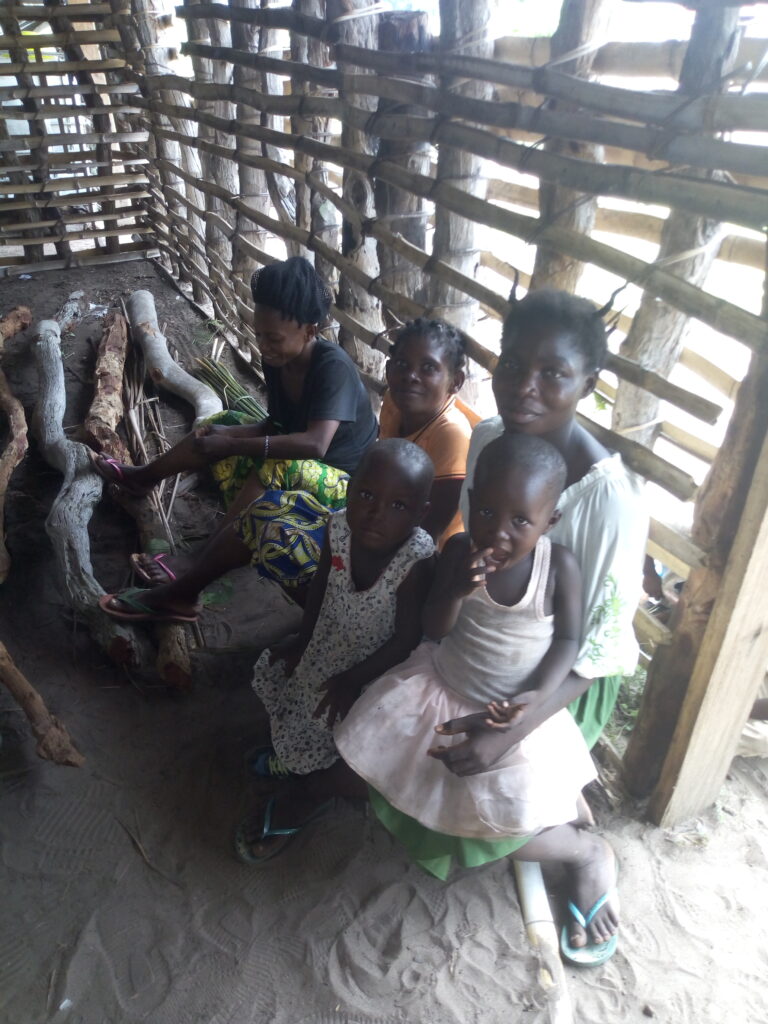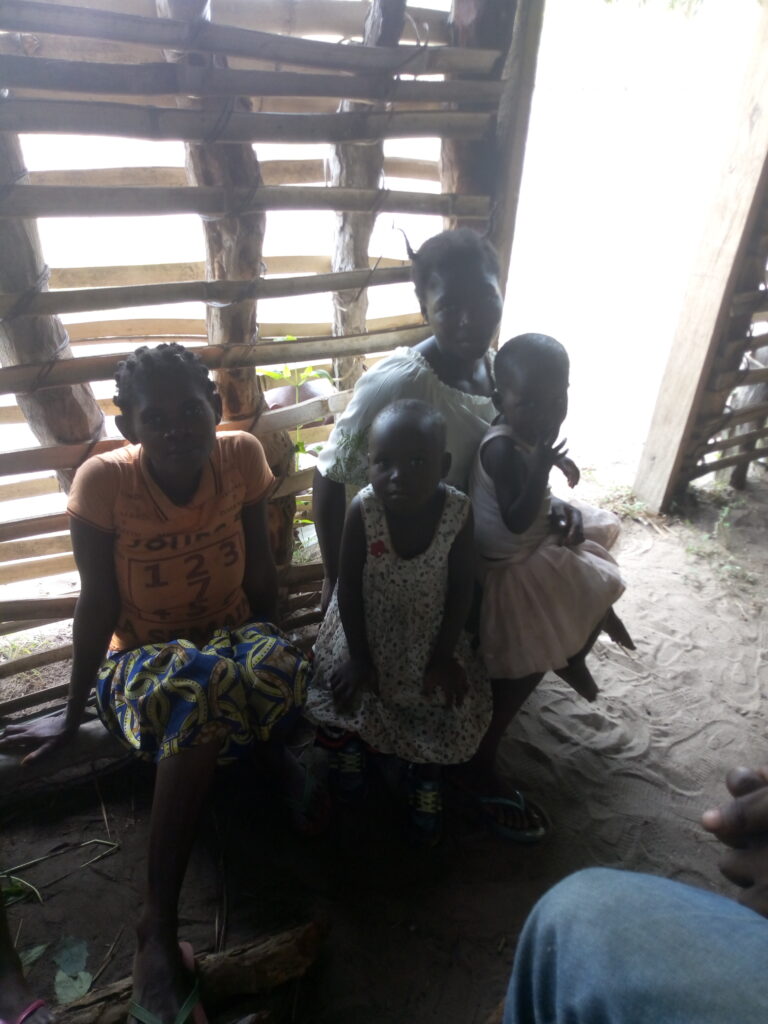Collective Security and Individual Liberty
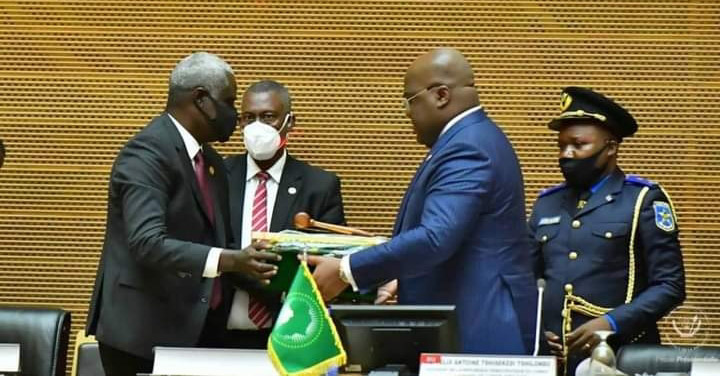
Collective Security and Individual Liberty the New African Union Challenges and Opportunities.
gs.

Collective Security and Individual Liberty the New African Union Challenges and Opportunities.
gs.
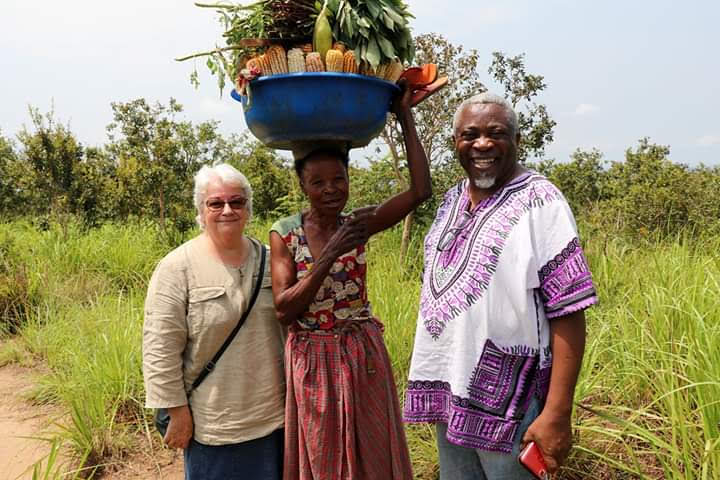
$ 150,000 is the amount that All United To Build, TUBA in acronym, needs to move 100 households in Kikwit and its surroundings from the state of endemic vulnerabilities towards empowerment. We invest in Agribusiness & Innovation. Our short and medium term result is the production of basic / improved seeds and their distributions. In the long term TUBA aims to empower 100 peasant women from Kikwit and make them entrepreneurs.
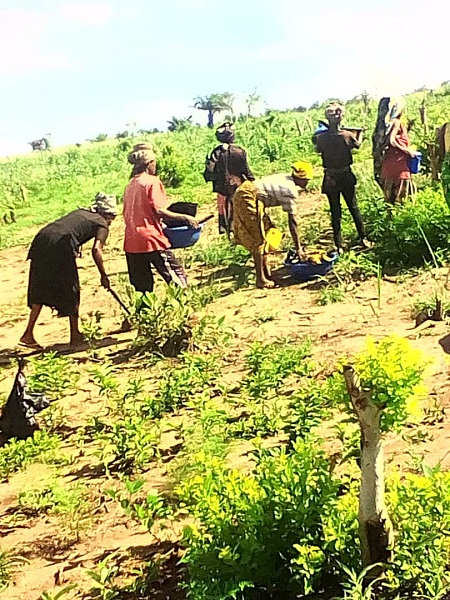
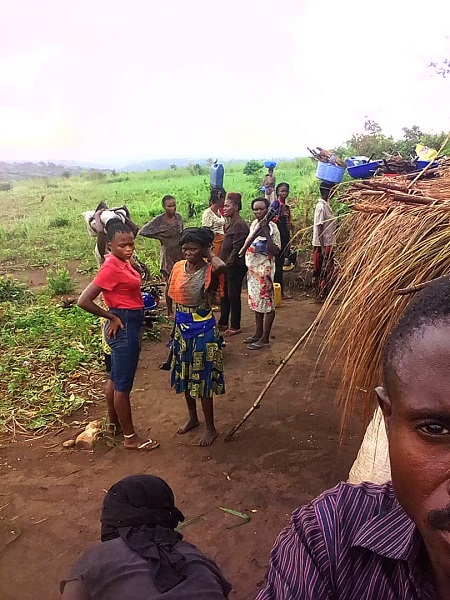
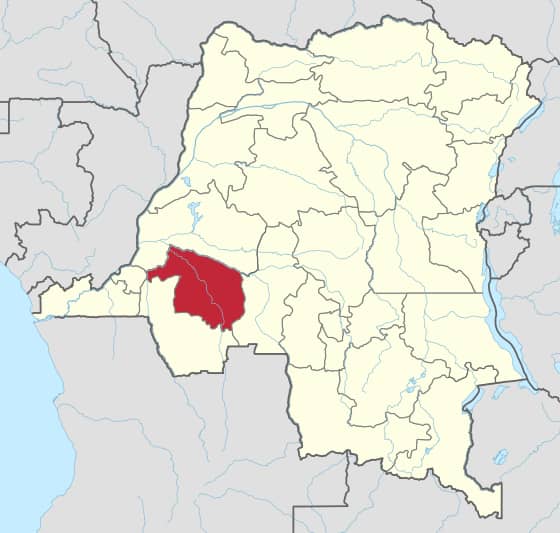
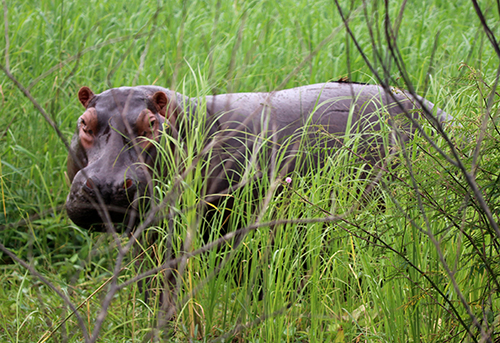
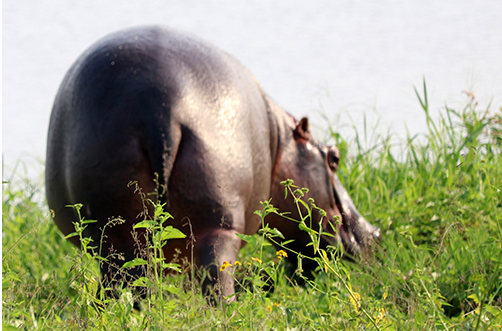
Author: Leah Renée Lumeya
Since moving to Cite du Fleuve, Kinshasa last September I had heard rumors that two or three hippopotamuses visit the grassy banks along the river very close to our home. It was difficult for me to image that they would come to an area so heavily populated with people and industry. As a photographer, animal lover, and person concerned about the preservation of wildlife I scanned the waterways daily in hope that the rumors were true. One March evening just at dusk I walked around the building across the road from our home and found myself staring at a huge hippo not 15 meters in front of me.
I have seen, photographed and recorded hippos on five occasions. I have been able to identify two individuals. Through conversations with employees of Cite Du Fleuve, neighbors, and others I have begun gathering stories and information about the hippos. I have come to realize that they hold the status of celebrity in this community and are much loved.
People in the neighborhood often come to get me when the hippos are seen out eating on the bank. On one occasion I arrived at the spot just as the hippo was going down the bank to enter the water. Across the water, on the far bank, people had lined up and were chanting, dancing, and singing. There were many children among those gathered. One of the men standing nearby explained to me that the people are the Mongo people. They are from Equator in Northern Congo. The river is their life. They believe in reincarnation, and that their ancestors come back as hippos. They also believe that they can communicate with the river animals. This particular hippo they called Koko (Grandfather). They were calling him with the chants and songs. They were saying “Grandfather, come out and say hello to your Mongo grandchildren”. Amazingly, the hippo did not seem to be afraid of them. In fact he went closer to them (still in the water) as they called to him and chanted. Though the hippo never left the water it tarried not far off the bank for nearly an hour before moving back into the deeper water of the river. The relationship between the animal and the humans was evident, and beautiful.
Since that day I have heard similar stories about hippos in Bulungu, Kwilu Province, and in other areas. As I continue to observe these animals and the mystery that surrounds them, I have hope that the respectful relationship will continue for many generations.
” Tous Unis pour Bâtir,TUBAkwilu Saison B. Nous remercions nos 100 volontaires sur nos 4 sites pour avoir commencer la saison B selon le calendrier agricole. Nous plantons 25 ha de Mbwengi et Soya”
All United together for Community Building, TUBAkwilu agricultural Season B. We thank our 100 volunteers on our 4 sites for having started season B according to the agricultural calendar. We are planting 25 ha of Mbwengi and Soya ”
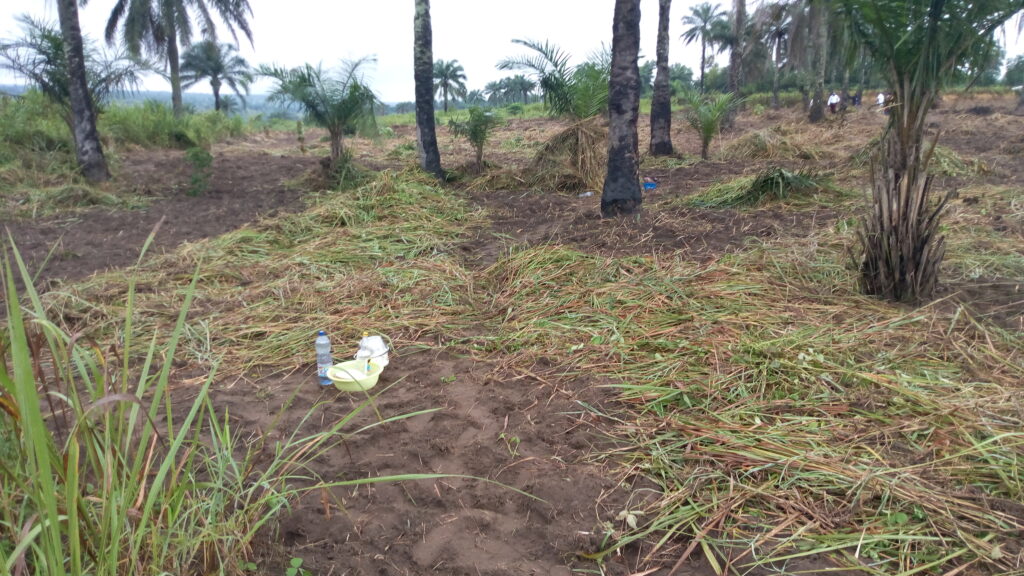
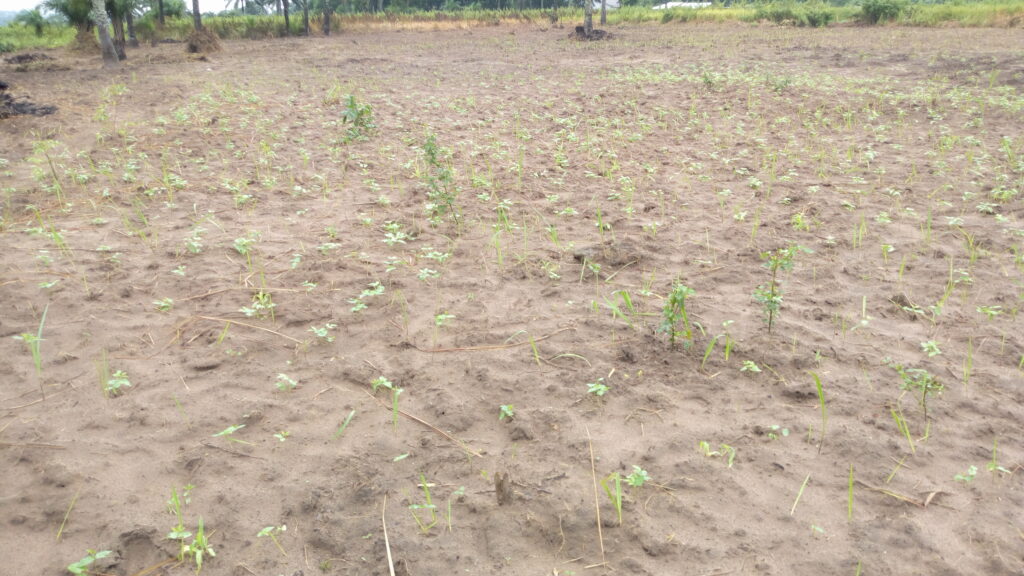
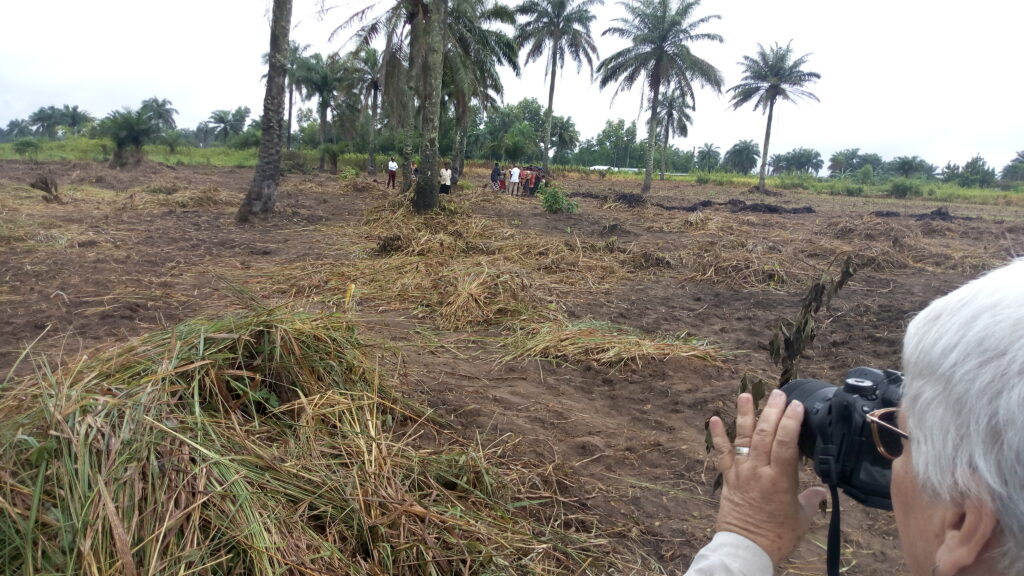
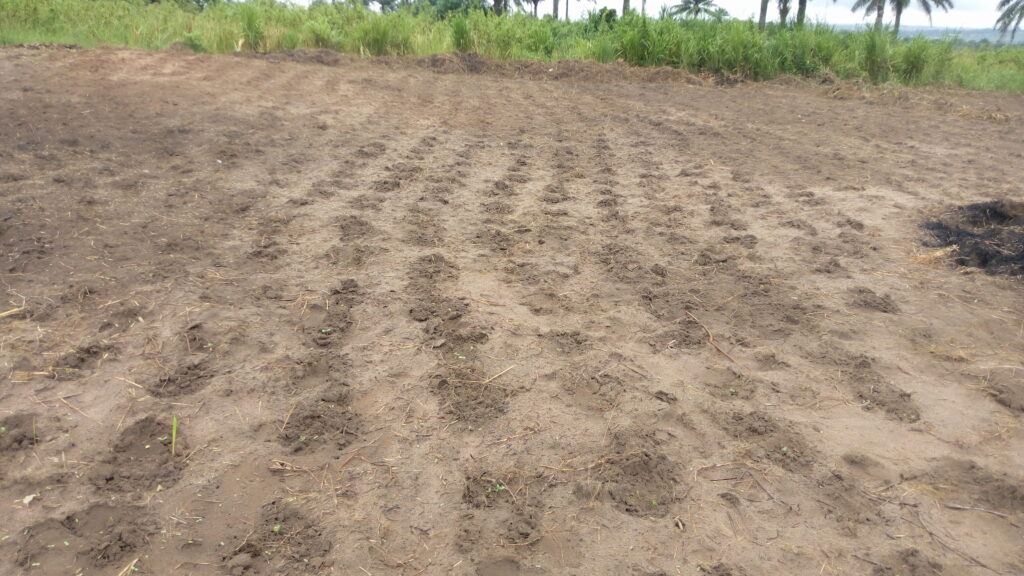
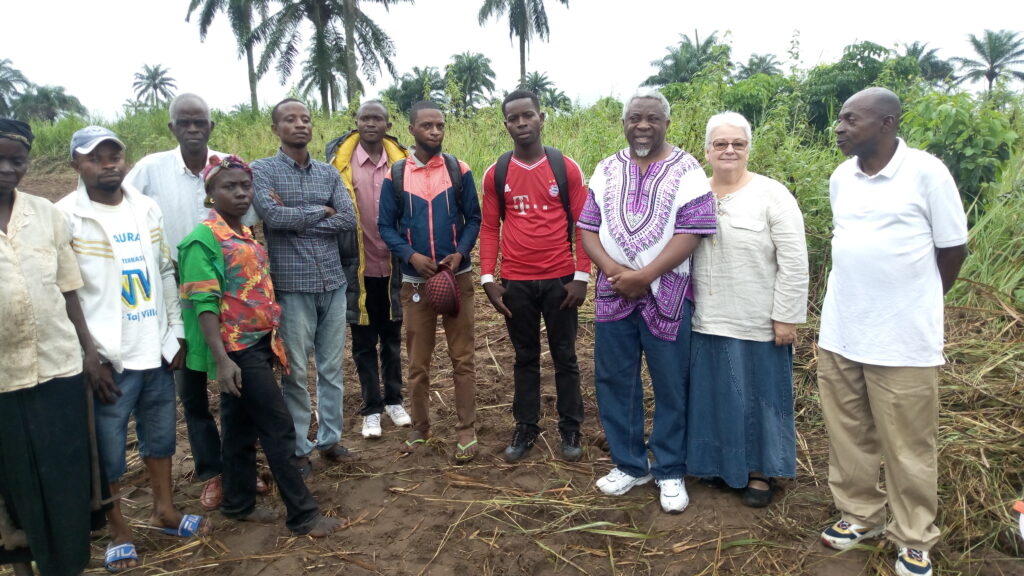
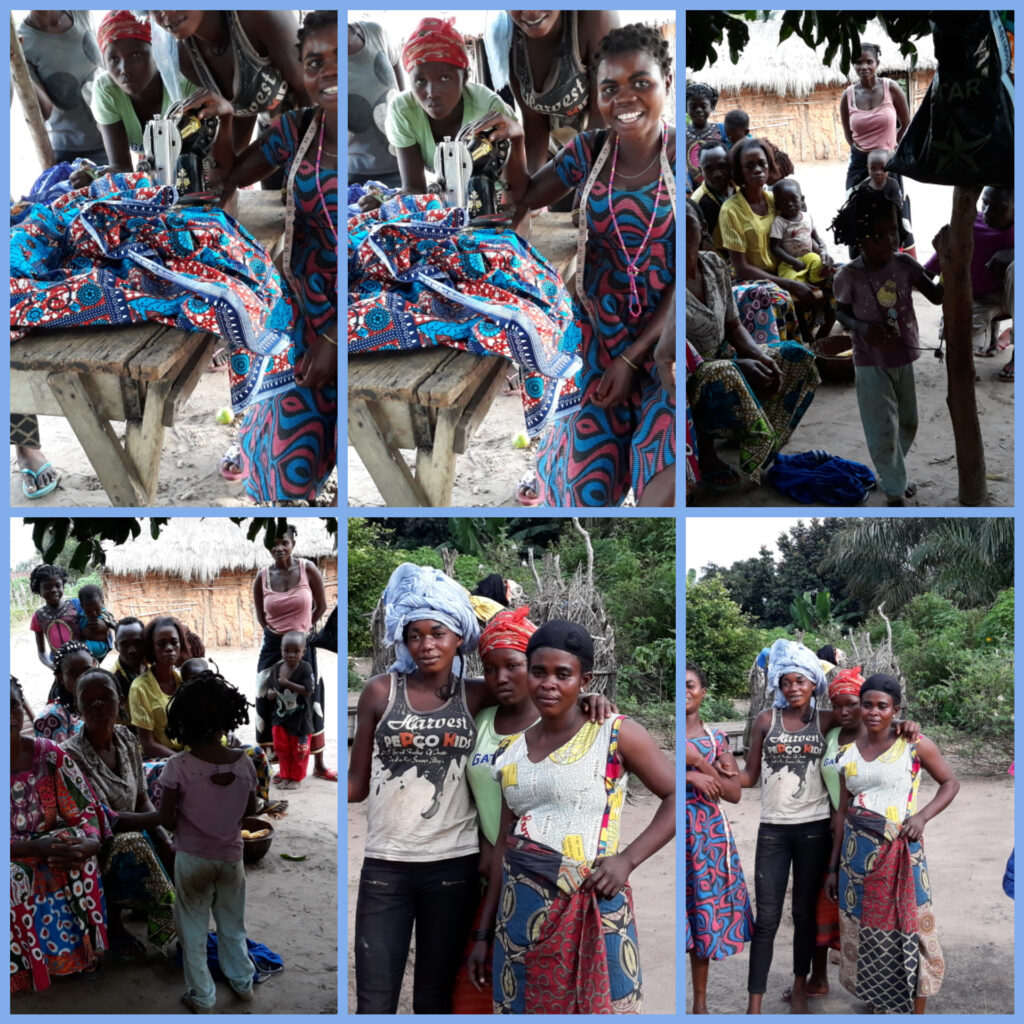
Malela: kana nge ke na machine a coudre ou $120 sadisa bana ba nkento yayi ya Malela. Machine mosi kaka ke na bwala yayi pour 20 bana ba nkento ya ke zo longuka kutunga. Bo ke kuisaka awa kansi kima kusala kele ve. Kana kisalu kele ve mingi ke na kukatuka sa na kuenda na ba mbanza ya nene kusosa “lujingu”.
ces groupes des femmes travaillent avec TUBA mais aspirent a devenir couturieres. Il n’ ya qu une machine pour 20 qu’elles sont. Nous avons besoins des dons en nature comme une machine a coudre ou plus. Avec seulement $120 nous pouvons avoir une machine a coudre. Avoir de l’emplois va les aider a eviter la prostitution et a attrapper le SIDA et les MSTs.
These women 20 of them works at TUBA agribusiness this is a seasonal work. They want to learn to be a seamstress but the village has one sewing machine. We are asking for more sewing machines or $120 donations to help create jobs for them but also to keep those vulnerable for moving to the city where they are forced to prostitution and or HIV or STDs.
Youth unemployment in rural areas leads to poverty.
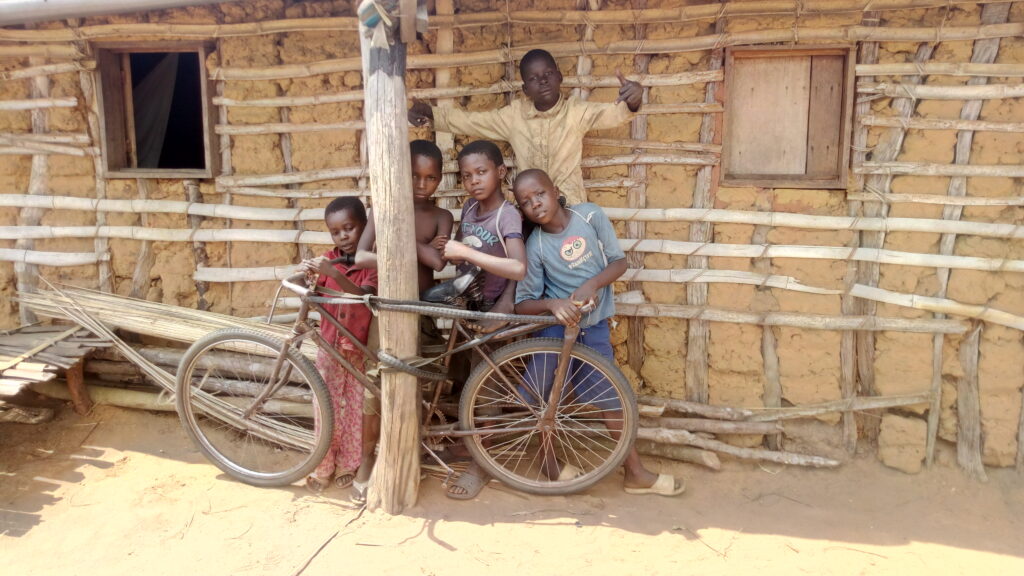
Where there is no jobs we teach our youth to volunteer.
Unemployment in Kikwit is higher as else where in DRC and this leads to more youth moving else where.
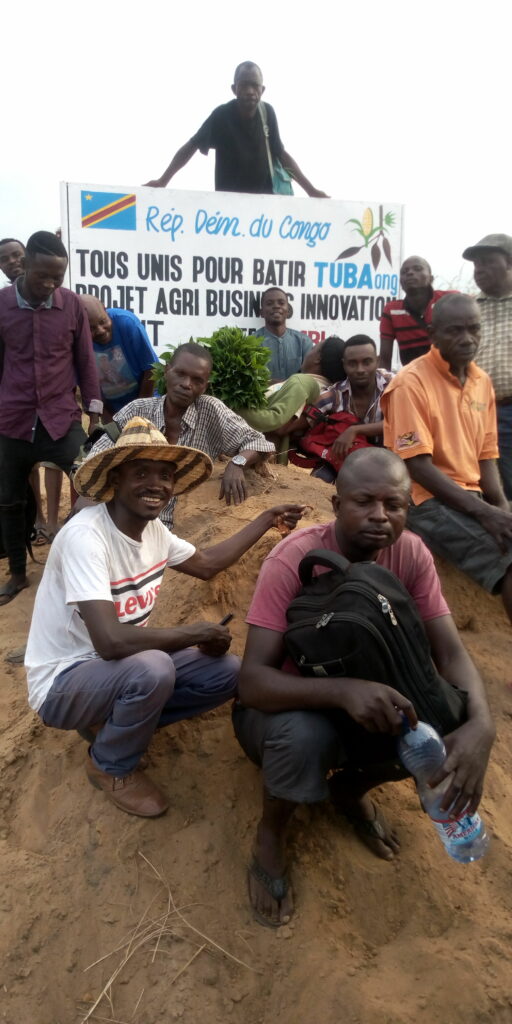
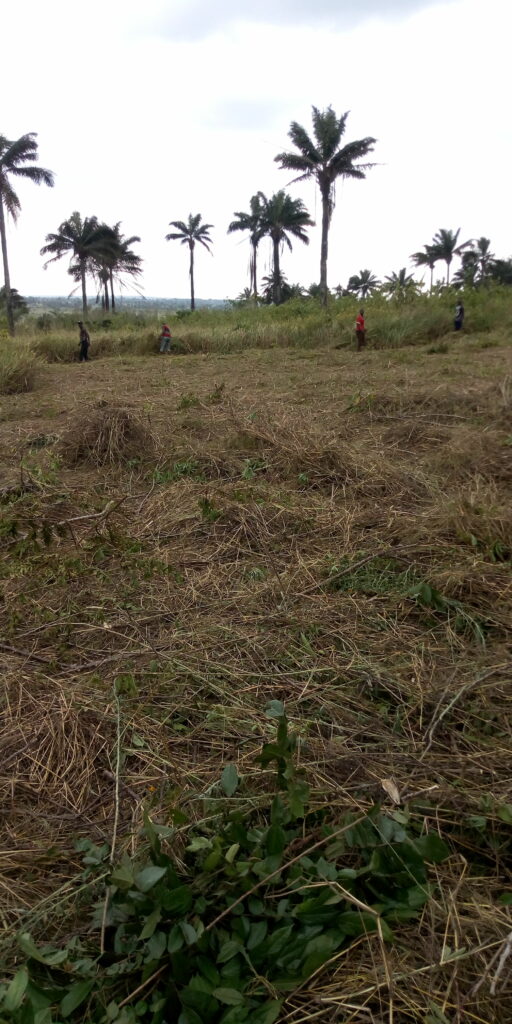
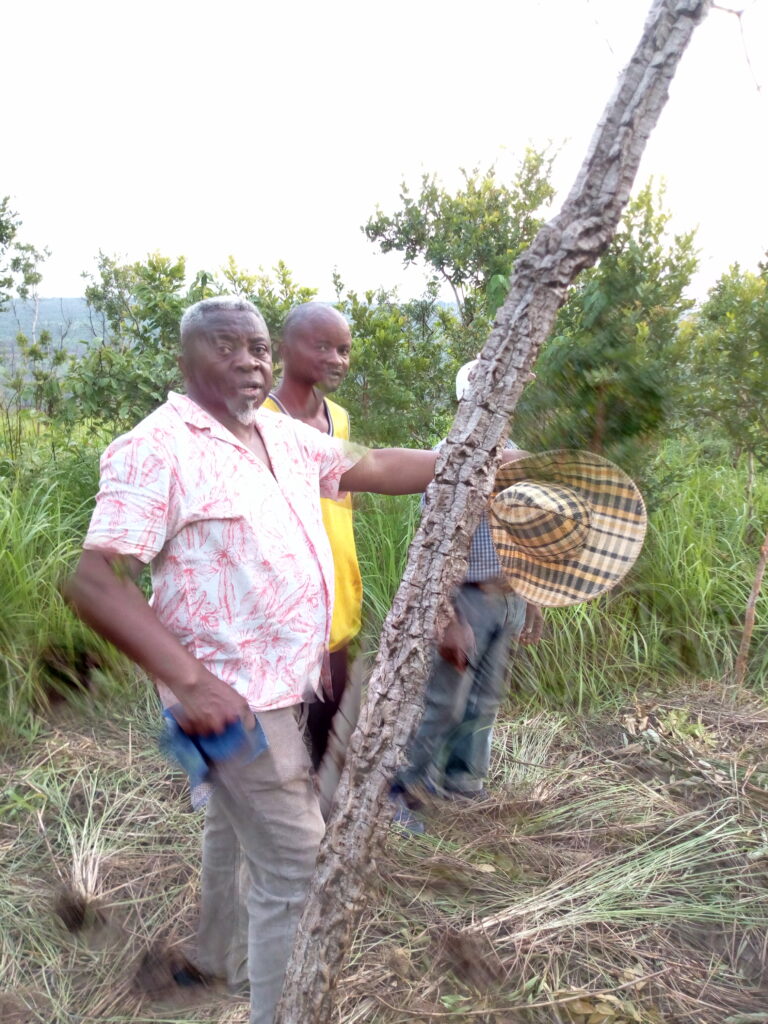
Report on the first 4 months in Congo.
In 2018, Fidele and I were living in Altoona, Pa. We received an invitation from the ECC (National Counsel of Protestant Churches in Congo) to travel to Congo to monitor the national election. During our time in Congo the decision was made to make DRC our permanent residence, and to take over the operation and expansion of TUBA. In the months that followed thousands of hectares (1 ha = 2.4 acre) of abandoned farmland were acquired. Partnerships with local farmers’ unions were established, and 170 men and women were employed in the preparation for clearing and planting 26 ha of the land for the first growing season.
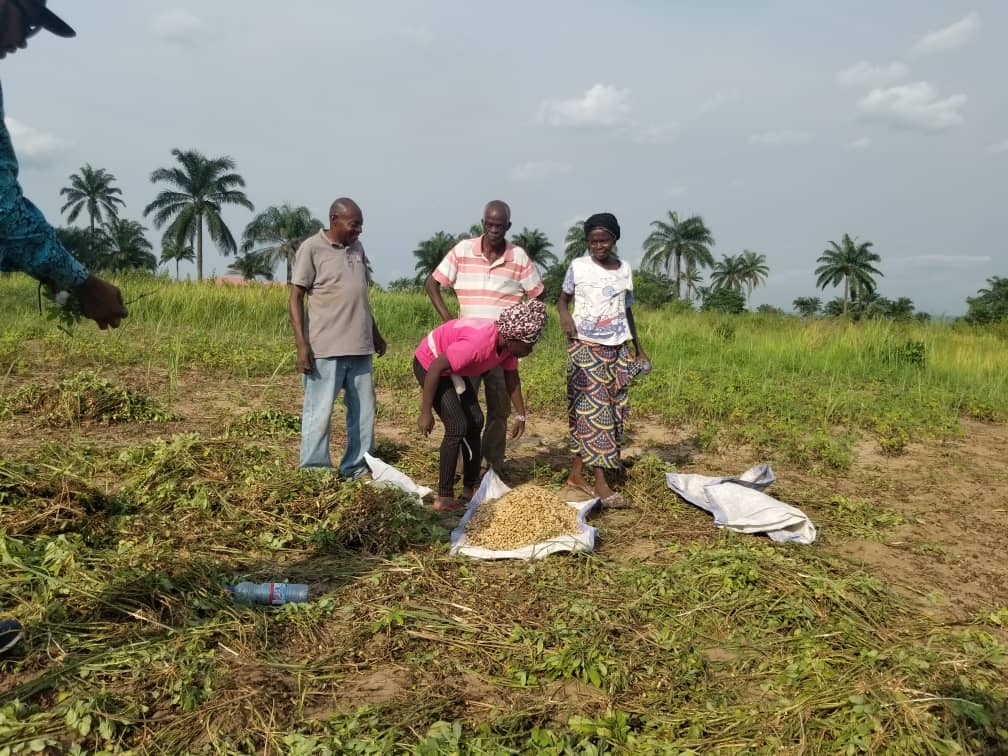
This is our first harvest of peanuts in 2020.
Families are the backbone of TUBAKWILU business. They work as volunteers.
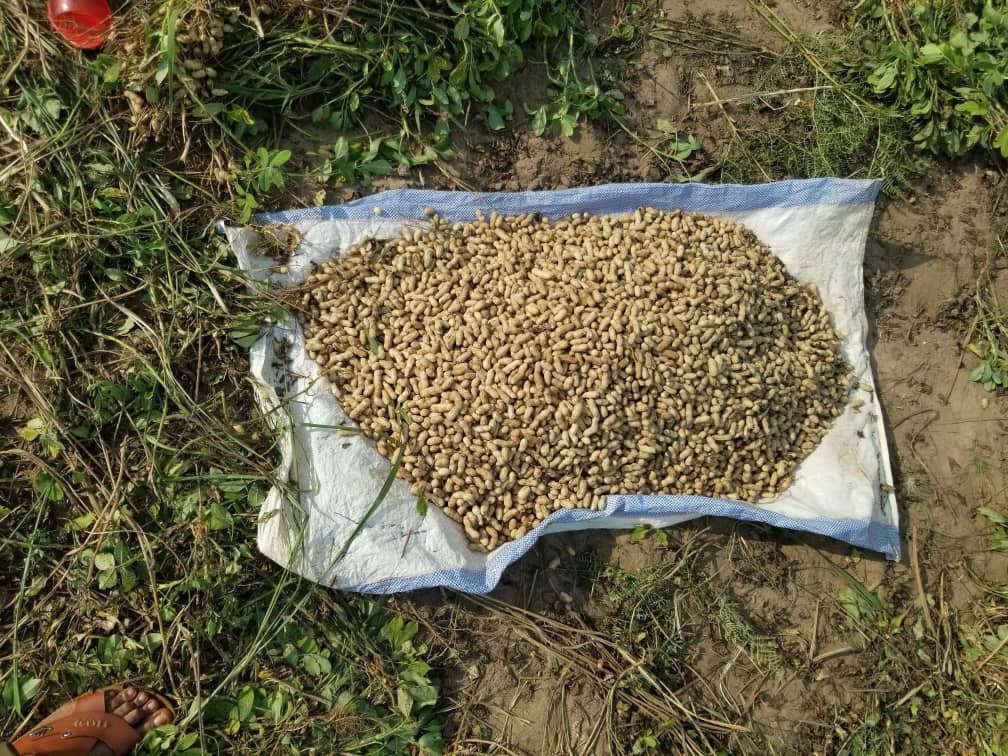
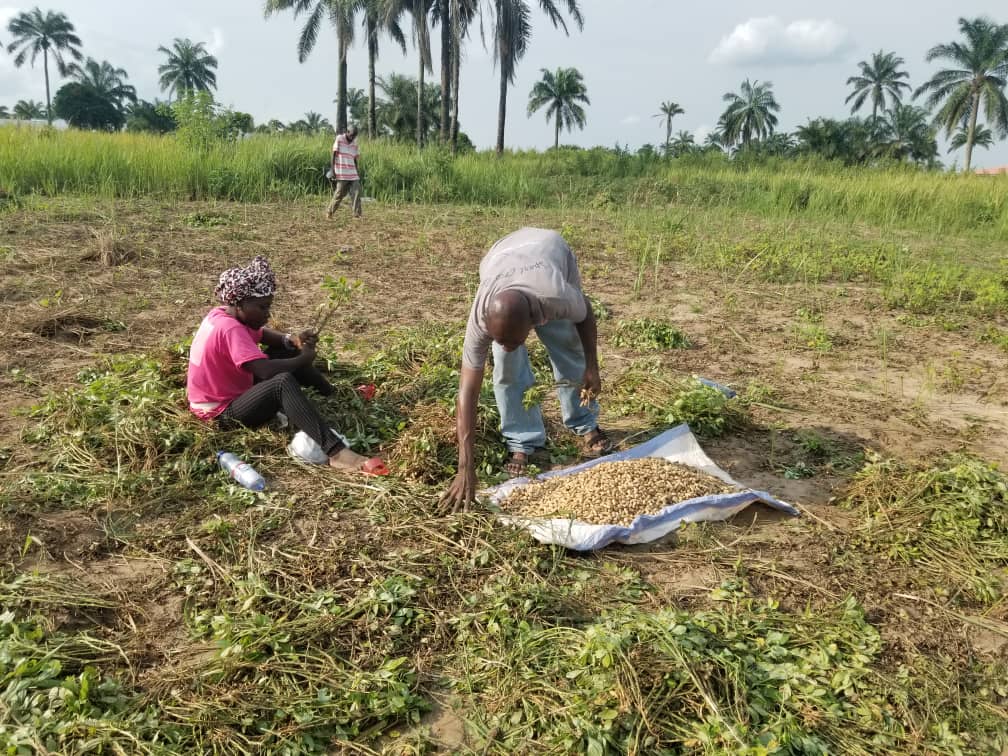
Roads Infrastructures mainly in rural areas are underfunded.
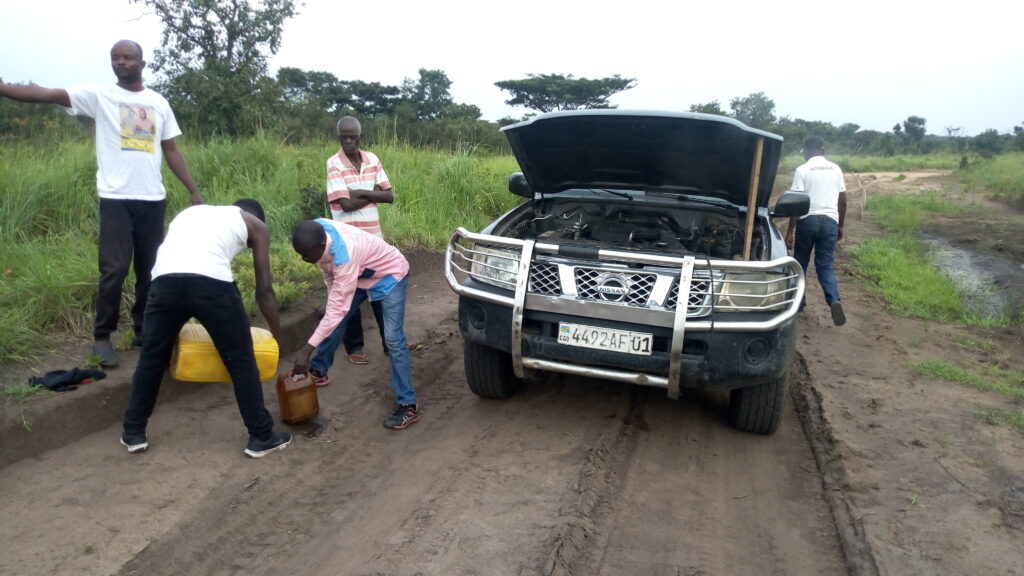
It took us more than 12 hours to travel 45 miles distance in between Kikwit the Capital city of Kwilu province and Malela the outskirt to visit our corn farm.
We are discussing opportunities to build partnerships for public-private roads with the ministry of rural development. This partnership Public-Private will include roads Infrastructures rehabilitation around Kikwit.
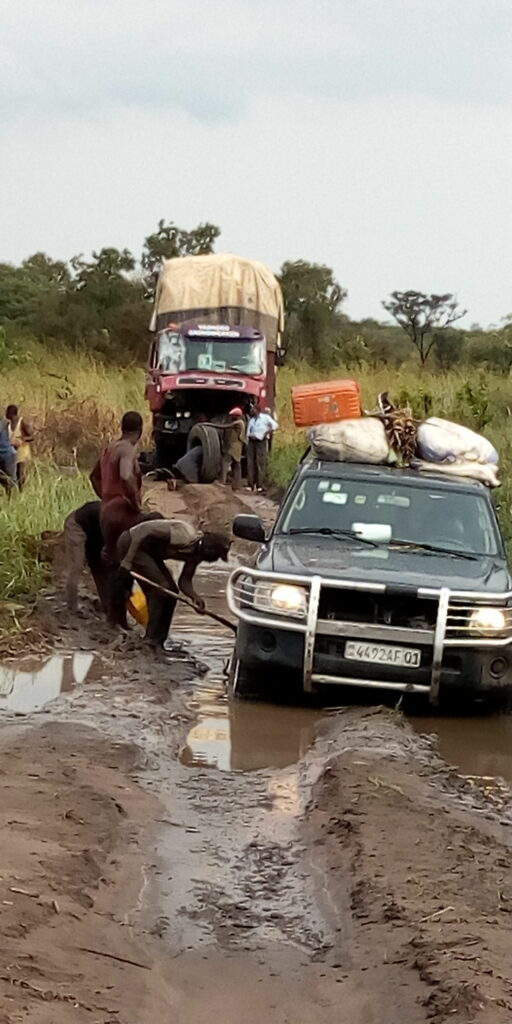
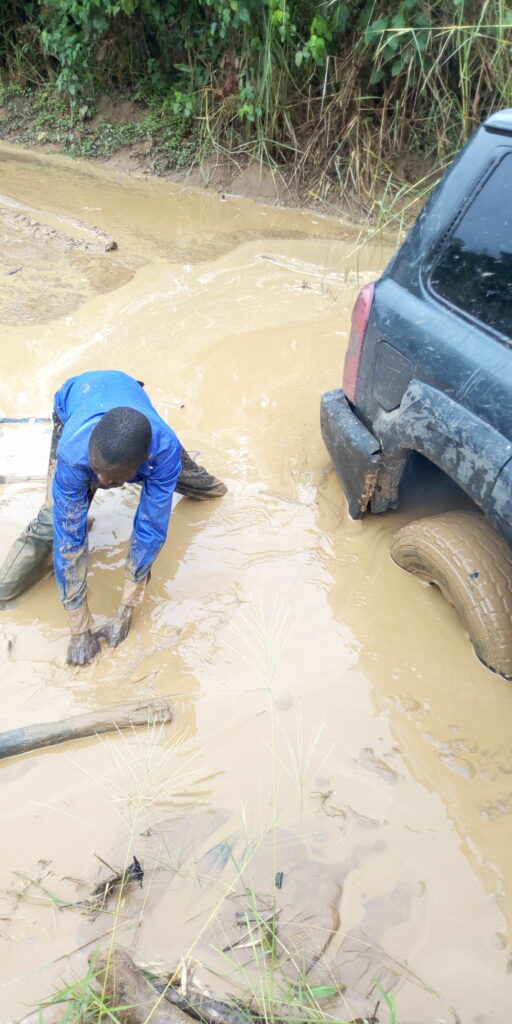
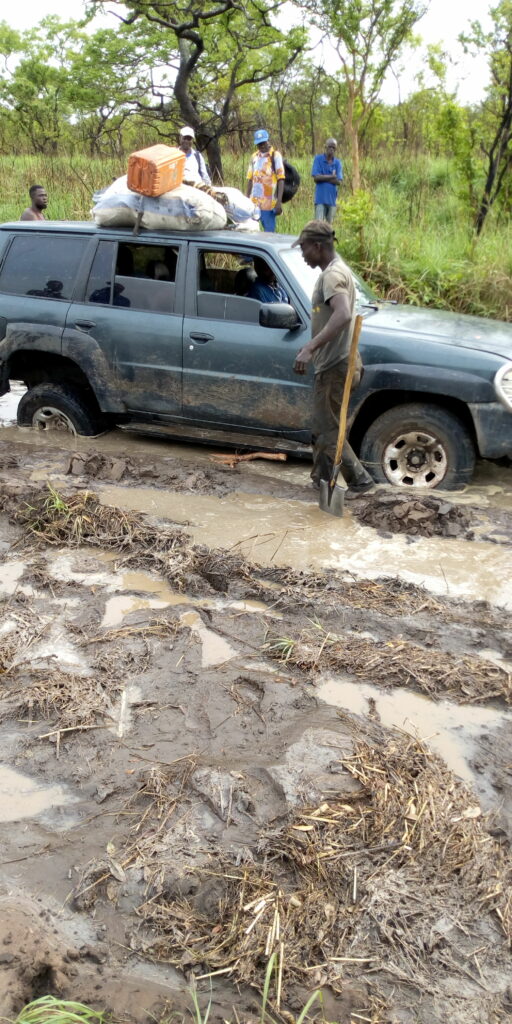
In 2020, TUBA will continue its advocacy around Land and women’s right to own the Land.
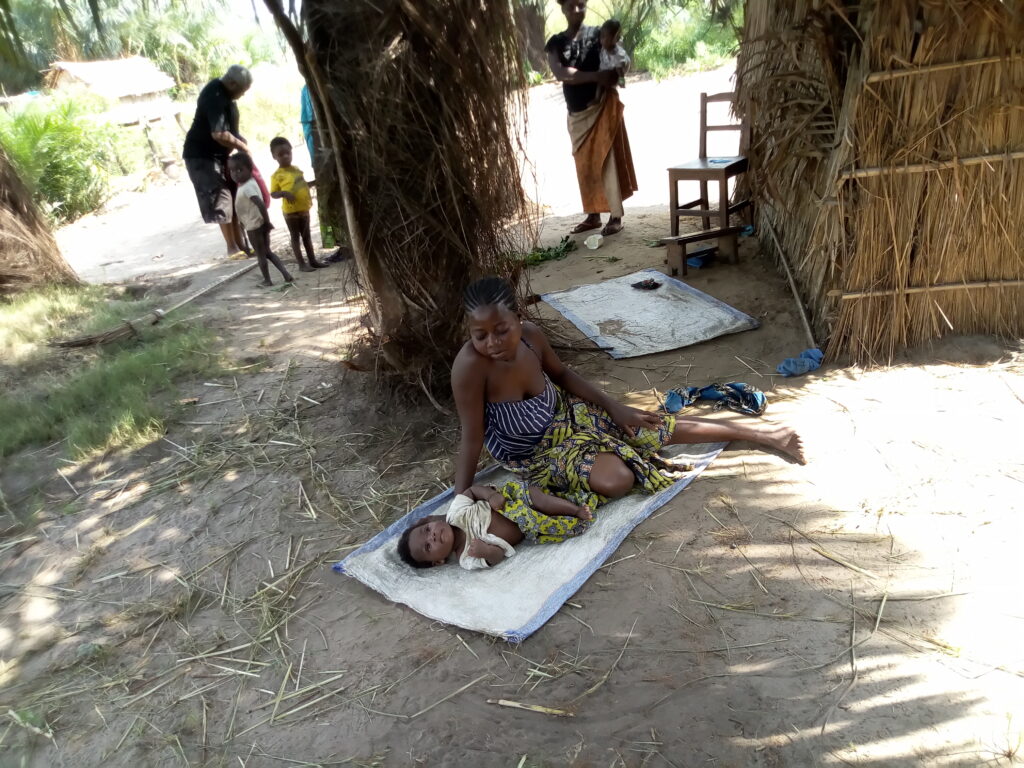
The customary Law in Kwilu province and around villages where TUBA is doing agribusiness doesn’t allow women to be land owner.
Women and Land ownership has to bé addressed for social justice human rights and participative democracy in DRC.
In 2019 TUBA started talking with several local lawmakers about this social injustice and the way to reform the customary Law.
